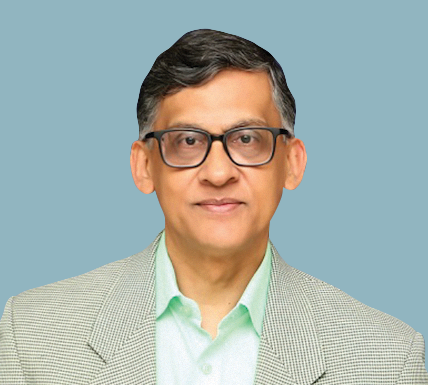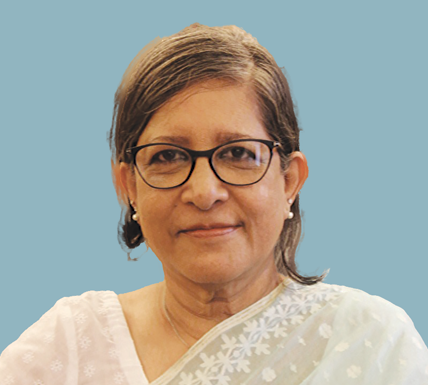Kintsugi is a strong metaphor for life, shared by the Japanese. I was reminded of it in
2022 in the context of the journey of the people and communities we are partnering
and working with. Kintsugi is based on the understanding that we all experience
difficulties, challenges, and traumatic events in life. Applying Kintsugi to our lives
means being bold rather than hiding the cracks and imperfections, we can accept
them and find new perspectives to move on and strengthen resilience. We found
that applicable for the communities and in the campaigns and movements, thus the
2022 report has been designed with Kintsugi in mind.
Two years since the global pandemic COVID 19, the world has been gradually
recovering from its impacts. We remained challenged by the triple crisis of climate
change, pollution, and loss of biodiversity. Russia-Ukraine war in 2022 caused
severe imbalance in the dynamics for communities and countries manifested in
disruption of supply chain and an energy crisis.
In Bangladesh, flash floods in Sylhet and Sunamganj districts, referred to as the
worst floods in the region in 122 years, left over 7.2 million people impacted. Serious
economic losses in the form of damaged crops, cattle, shelters, and other assets, were
suffered by those in the frontline of the disaster. Women and children were affected
the most, resulting in their education, nutrition, health, and safety compromised.
UNICEF reported that over 3,000 primary and secondary schools were closed for
about a month, resulting in colossal learning losses for over 1.5 million learners. Men
left in search of alternative livelihood, leaving women responsible for the children
and the elderly, most importantly for ensuring food and water! There are reports
of boys being pushed into informal work, child marriage rose in the affected areas
and health issues took a turn for the worse. In the midst of the loss and damage
suffered, the community glued their life back. We stood by the communities affected
by climate extremities and inequalities.
In 2022, in Bangladesh, around 1,105,648 people were reached, of whom two-
thirds were women and children. We were one of the early responders to all the
humanitarian crises that occurred in 2022 in Bangladesh like the cold wave in the
north, and fire breakout in Kallyanpur, one of the informal settlements of Dhaka. We
continued our work in Rohingya camps and reached 900,150 Rohingya refugees in
the reporting year.
We focused on building community resilience by working with women and young
people at the grassroots and were rewarded with exemplary results. During the
flash flood of Sylhet and Sunamganj and cyclone Sitrang, they diligently contributed
to disaster risk reduction, management, and response. Young people and youth
organisations advocated for climate justice and led climate strikes. They advocated
for embankment governance and management, gender equity, participation of youth
in decision making and other issues across the country.
We hosted the ActionAid Federation colleagues, the Secretary General and
the International Board Chair and other members in Bangladesh. Their visit to the Sundarbans and community left an indelible print of the climate change impact on the
communities. The determination to achieve justice was pushed to a newer height.
At the national level in collaboration with policymakers, movements and like-minded organisations
contributed to the CSO’s position paper for COP27, the Integrated Energy and Power Master Plan,
the Energy Charter Treaty, and other initiatives. We facilitated the young people, empowering
them to voice their concerns and demands through the Youth COP, the National Adaptation
Plan, the National Voluntary Policy to name few of the initiatives. The partnership with the private
sector grew and SUPER project contributed to the consortium, being able to move the sector
towards resilience.
At COP27, with a clear emphasis on separate climate finance for Loss and Damage we
campaigned, highlighting the evidence from the frontlines to enable adoption of measures in
addressing loss and damage. It was a defining moment when COP27 became the ‘Loss and
Damage CoP!’
These initiatives and achievements have been possible because of the unwavering courage of the
communities and support of the development and implementing partners. We were recognised
as we were awarded the Aga Khan Architecture Award 2022 for our creative design of women-
friendly space that upheld Rohingya culture while involving women in the Rohingya camps. We
also won the SILVER award in the ICMAB Best Corporate Award-2021 for our annual report
under the NGO category.
In 2022, with BDT 952 million, we delivered on our mandate. We contributed BDT 49,145,118,
including withholding tax and withholding VAT, to the Government Exchequer. We worked
with 50 partners at local, national and international arenas. We formed new partnerships with
private sector stakeholders such as Eastern Bank Limited, Green Delta Insurance, Abdul
Momen Group, the University of Liberal Arts Bangladesh, and United International University to
support resilience, climate justice, education, and humanitarian response programmes. We also
expanded our digital fundraising horizons and onboarded bKash, Foodpanda, and Ekdesh (a2i)
as crowdfunding partners with stable success in raising individual donations.
Looking back, we were able to meet the multiple challenges with the support of AAB family and
the communities. The road ahead may be difficult as we encounter more challenges, however,
in the future, there is the sense of optimism drawing from kintsugi. Happy reading!
Farah Kabir
COUNTRY DIRECTOR



